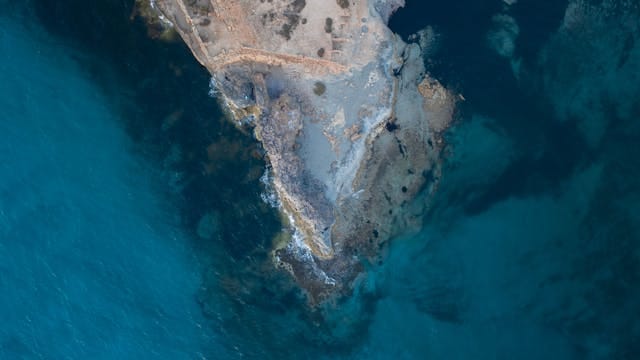Why Libya is vital to Europe’s future
By Eddie Monkman
Abstract
Libya’s division between Tripoli and Benghazi is shaping Europe’s migration and security challenges for the decade ahead. With Tripoli embroiled in political unrest and Haftar’s east backed by Russia and Turkey, Europe risks losing leverage over its southern borders. A coherent EU strategy that engages both east and west is essential to managing migration flows and safeguarding European interests.
Article
Since the fall of the despotic regime of Muammar Gaddafi in 2011, Libya has been a country embroiled in political turmoil, split between east and west. The North African country sits on the southern edge of the Mediterranean Sea, across the water from Italy, a country with which it shares a fraught colonial past. But Libya is a nation that has as much influence on the future of European affairs as it does play a part in its history. The deteriorating political situation in Tripoli, home to the UN-recognised Government of National Unity (GNU), is offering greater encouragement to smuggling gangs crossing from the Sahel to use Libya as a transit point from which migrants can cross the Mediterranean and eventually enter mainland Europe.
The political instability in the western-backed capital of Tripoli is an issue that, thus far, Europe has failed to adequately contend with. Tripoli has experienced conflict between rival militias across 2025, and the GNU has failed to get a grip on the situation. Speaking at the UN Security Council in June this year, the UK ambassador to Libya Dame Barbara Woodward said that: “We are concerned at Libya’s trajectory, particularly the worsening political and economic conditions. And these trends threaten the country’s stability, sovereignty, and unity.” Due to this deteriorating situation in the west, Europe has begun to slowly engage with eastern Libya, led by General Khalifa Haftar. However, relations have been strained, and this was highlighted by the acrimonious exit of an EU delegation from Benghazi after the Haftar government accused them of “disregarding national sovereignty" in July of this year. For the EU, this expulsion was a moment of embarrassment on the international stage and one that highlighted the fact that the dynamics of power may be shifting in Libya. Tripoli is chaotic and unpredictable, whilst Benghazi is firm and growing more assured.
For Europe, the more concerning facet of Benghazi’s growing surety is the fact that it is enjoying the support of EU rivals in the shape of Russia and Turkey. However, practical and diplomatic constraints limit how far Europe can pivot east. Only the executive in Tripoli is formally recognised by the UN and the wider international community, and key institutions such as the Central Bank and visa authorities remain based there. For now, Tripoli remains the EU’s central point of access, even as its influence wanes.
This leaves a gap that others are eager to fill. Haftar’s Libyan National Army (LNA) has received sustained military and economic support from Russia, Egypt, and the UAE, with Wagner Group fighters playing a particularly visible role. Some observers warn that continued diplomatic exclusion by Europe could drive the LNA deeper into Moscow’s orbit, raising the prospect of an internationally backed Eastern Libya. Such an outcome would complicate any EU-led migration strategy and weaken Europe’s leverage over its southern flank. For Haftar, meanwhile, instability in Tripoli has only strengthened his hand, allowing him to project himself as a coherent political alternative. The Benghazi expulsion incident (Reuters) underscored this growing confidence, as tensions between east and west persisted through 2025 against the backdrop of a stalled national reconciliation process.
Libya’s fractured landscape makes it the decisive test of whether the EU can coordinate a credible migration policy over the next decade. As the main departure point for migrants crossing the central Mediterranean, stability or the lack of it in Libya will determine whether Europe faces manageable flows or recurring crises. Engagement limited to Tripoli risks becoming ever more effective if Benghazi continues to consolidate power with backing from Moscow and Ankara, while ignoring the east altogether would only deepen Europe’s vulnerability. For Brussels, forging a coherent approach to Libya is not just about addressing today’s crossings but about shaping the political and security environment that will define Europe’s migration challenges for years to come. Without a strategy that accounts for both east and west, Europe risks ceding control of its own borders to actors whose interests lie far beyond the continent.
About the author
Eddie Monkman is a Political Science graduate and London-based freelance journalist who writes on politics, culture, and international events with a specific focus on Libyan politics in the 21st century. Eddie’s entire portfolio can be found here.
The views expressed are solely those of the author(s), not of the Center.




